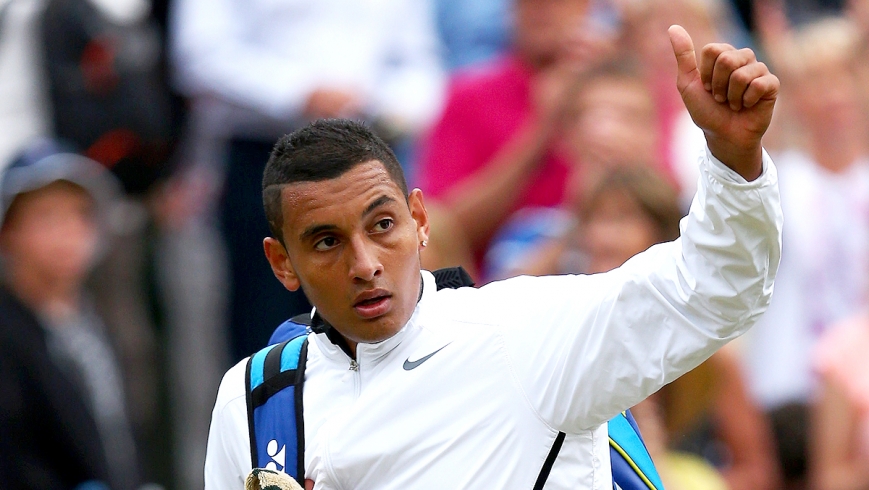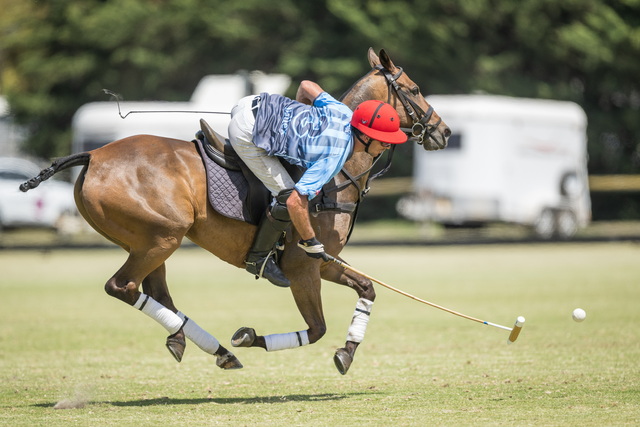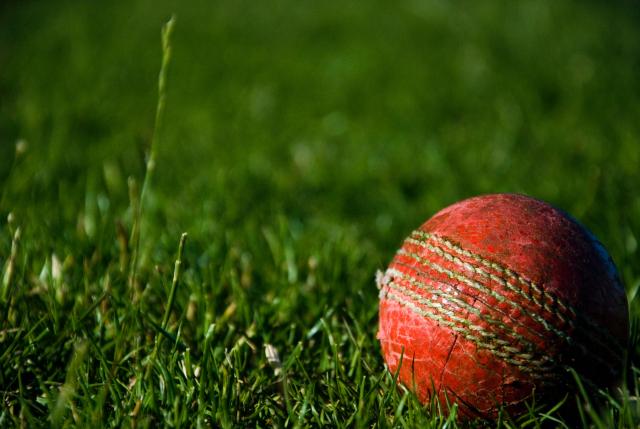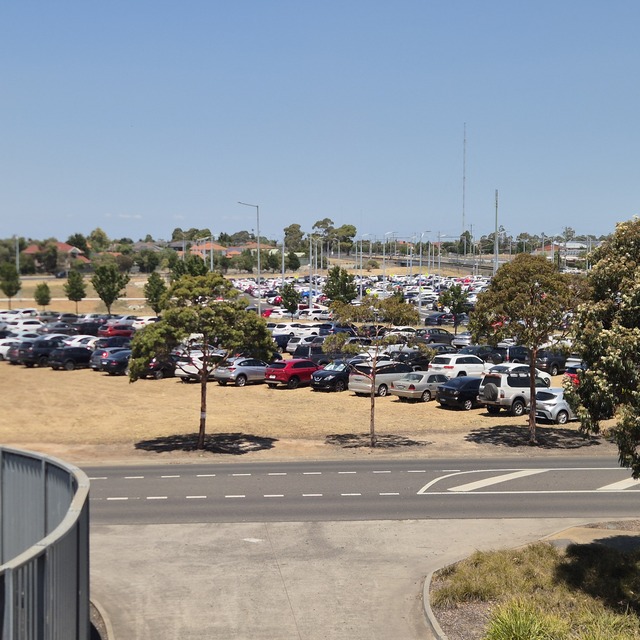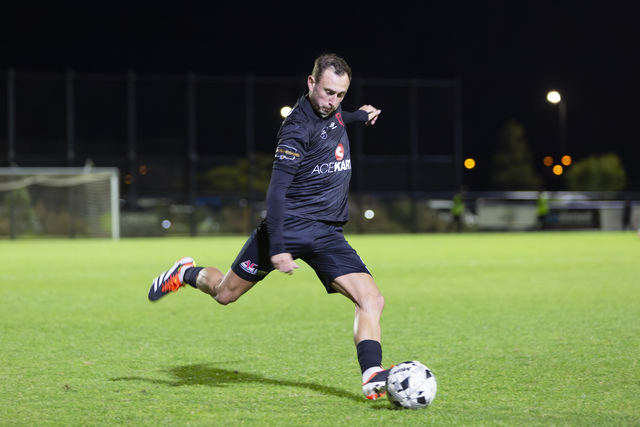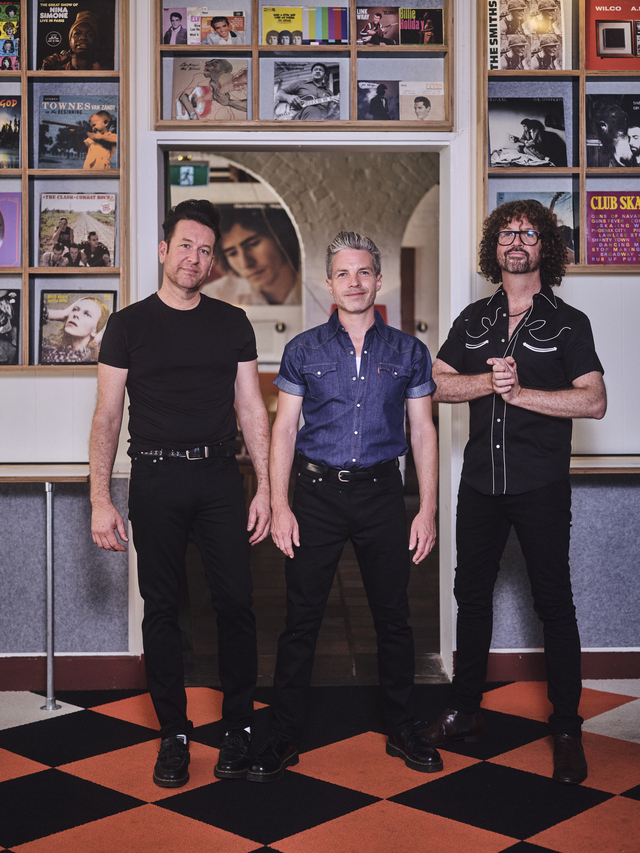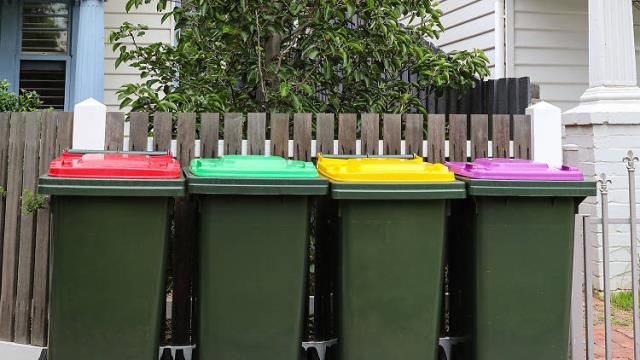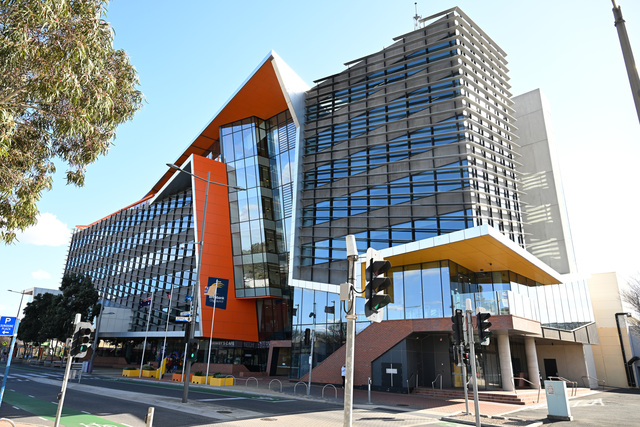Nick Kyrgios will enter the world’s top 70, but not the Wimbledon semi-finals, having been unable to replicate his monstrous upset of Rafael Nadal against monster-serving Canadian Milos Raonic. He was tired, but he competed, admirably. There was disappointment, but certainly no shame.
Kyrgios was eliminated by eighth-seeded Raonic for the second consecutive grand slam, both times as a wildcard, this time 6-7 (4-7), 6-2, 6-4, 7-6 (7-4). The 19-year-old’s tournament may be over, but so are those days of relying on grand slam handouts, or qualifying. He has a seat at the adults’ table now.
And deserves to, for Kyrgios has shown he is capable of regular success at second-tier Challenger level, and shines when the level is raised, as well. The big league is where Kyrgios belongs, and if he has arrived earlier than expected, it would be a massive surprise if he is not here to stay. This fortnight, the youngest player in the men’s draw was among the last eight.
On Wednesday, the expectation had been that Kyrgios would suffer some kind of let-down, or come into it feeling a little flat. But that four-letter word did not seem to be in the Kyrgios vocabulary, not in the early stages, at least. He was not as sharp as on the previous day, but he was up for this, make no mistake.
Understandably, he did not slip straight into his Nadal groove, for less than 24 hours had passed since that exceptional performance and he would have been feeling some sobering after-effects. Indeed, Kyrgios saved more break points in his first three service games than he had faced in almost two sets against Nadal.
It was a different court, No.1, and Raonic is a completely different player: a right-hander with a serve Kyrgios rates as the best in the game. The pair went ace for ace to begin, Kyrgios under pressure more often, but able to force a tiebreak, where he owns an 11-6 record so far. From 4-4, there was a botched Raonic forehand, then two big Kyrgios serves. Make that 12-6 in career tiebreaks. Nice.
But if that was business-like, a moment early in the second set was pure ‘wow’. Kyrgios was serving at 15-30 and Raonic at the net, clipping a nice forehand volley deep into the corner, seemingly for a winner. But with a few long strides, Kyrgios had reached it, and, at full stretch, flicked it cross-court for a ridiculous passing shot winner. He liked that one. Really liked it.
Two games later, not so much. A couple of sloppy errors saw him down 30-40, and after a long rally, Kyrgios sent a backhand wide. He had only dropped serve once against Nadal, but did it twice in a row against Raonic, who belted 10 aces while not losing a point on his first serve in a brisk 23-minute second set.
When a similar scenario unfolded against Nadal, most had imagined that would be that – the Spaniard in four – only for the opposite to prove true. Against Raonic, there was no such pessimism, and the Canadian’s serve was broken for just the second time in the tournament as Kyrgios skipped to 2-0. But then it all unravelled, the world No.9 comfortably winning four straight games, and six of the next eight.
By then, Kyrgios could relate to how Nadal had felt at times the previous day, for a big guy hitting huge serves on grass gives his opponent little room to manoeuvre. Indeed, Raonic was performing at a level that ensured the young Australian could find no opening back into the match at all.
He was struggling a little with his footwork, not always bending to the low balls, appearing casual at times when it may just have been fatigue after a monster week. He was, dare we say it, a little flat. That, of all things, was not a good sign.
But, without winning one point on the Raonic serve until 6-5, he bravely pushed the fourth set to a tiebreak, before the seemingly-inevitable was confirmed in two hours, 24 minutes, the winners’ ovation for Raonic, himself headed for his first major semi-final, against Roger Federer, but a generous send-off for Kyrgios as well.
So that was it. For now. The last Australian to reach a Wimbledon semi-final was among the crowd, and if the wait for Lleyton Hewitt’s successor has now stretched to nine years, from a long tunnel, happily, comes more than a glimmer of light.
Kyrgios was within one match of becoming the first debutant to reach a Wimbledon semi-final since 2002, the lowest-ranked in 15 years and the youngest man since Goran Ivanisevic in 1990. It proved a match too far, but he will be back, and better. Big, big things await.

